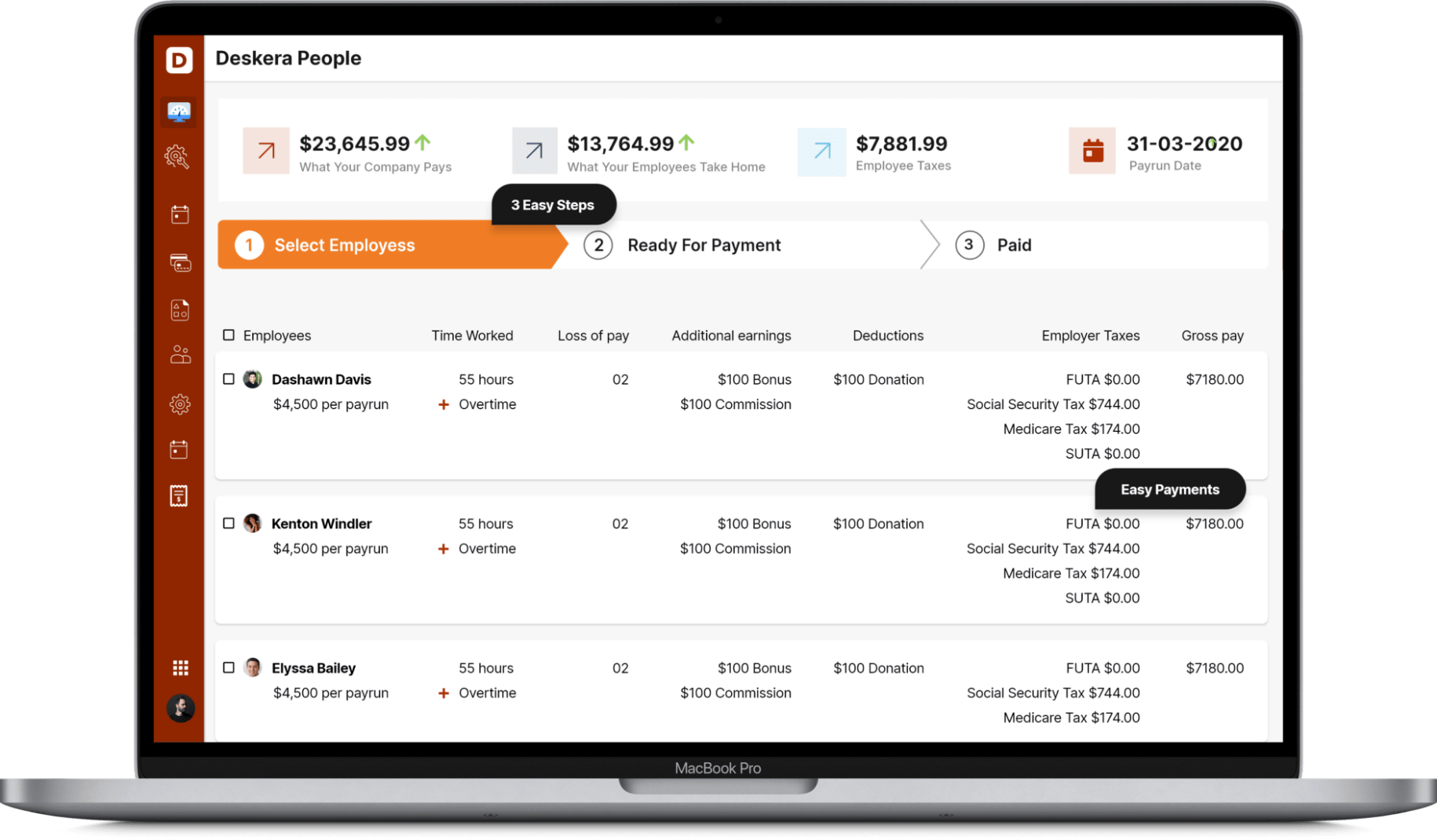Interviewing applicants may be difficult. During the interview, you must walk a fine line between making your prospect feel at ease and without veering into a risky question zone. In other words, they are being asked unlawful interview questions.
Most HR professionals and businesses are unwilling to ask illegal questions to find the best candidate for a job or get to know an applicant better. Indeed, according to CareerBuilder, 20% of recruiters admit to having posed an unlawful interview question in their careers, which they only recognized after the words had left their lips.
However, ignorance of the law does not shield an employer from lawsuits and other legal disputes when the chips are down. To prevent expensive blunders and place your firm and job seekers in awkward situations, we've compiled a list of 45 interview questions you should never ask candidates.
Table of content
- Birthplace, race, citizenship, national origin, ethnicity
- Questions related to age
- Questions regarding Gender Identification, and Sexual Preference
- Family, marital situation, and living situation
- Pregnancy-Related Concerns
- Religious background and church attendance
- Questions Regarding Medical Information and Genetic Background
- Questions Regarding Disability
- Questions Regarding Arrest Records and Convictions
- Questions Regarding Military Status
Let's Start!
45 Illegal Interview Questions You Should Never Ask Candidates
To guarantee a fair, non-discriminatory, lawful, and moral interview process for all candidates, all businesses must adhere to the Equal Employment Opportunity Commission's (EEOC) guidelines. In addition, as is customary, several states (and even towns) establish their guidelines for the kind and substance of interview questions.
Employers should never ask interview questions that intend to expose information that may prejudice candidates. Most of such unlawful interview questions concern the following topics:
Birthplace, race, citizenship, national origin, ethnicity
EEOC strictly prohibits any query attempting to find out someone's national origin or ethnic heritage. However, even seemingly innocuous questions, such as what languages a candidate knows, might be an attempt to determine where they are from.
- What nation do you come from?
- Do you have a passport?
- Where do you live permanently?
- What's your current postal address?
- Did your parents grow up in America?
- What is your native language?
- What is the hue of your eyes?
- Do you have a particular ethnicity?
For Title VII breaches, you must be extremely cautious about your questions and how you ask them. For example, if you require workers who speak foreign languages, you can question them about their competency and communication abilities in those languages, according to the job description. In addition, if long commutes are a concern, ask applicants if they will get to work on time every day at the same hour.
The act permits only inquiries about race or ethnicity in affirmative action programs. However, you must be extremely explicit, never ask such questions carelessly over the phone, and get legal help before doing the interview.
Questions Related to Age
While you have the right to know if the individual you're hiring is at least 18 years old, that's it. The Age Discrimination Employment Act prohibits employers from discriminating against anyone over 40. Thus attempting to deduce the answer may find you in hot water.
Not to add, several states have laws in place to protect those under the age of 40 from age discrimination. So it doesn't matter either way the age questions go—don't do it.
If a candidate does not include their age or birth year on their CV, we recommend avoiding any direct or indirect queries about their age:
- What is your Age?
- In what year were you born?
- When did you graduate from university?
Questions regarding Gender Identification and Sexual Preference
The regulations are strict and detailed for gender, identity, and orientation. Gender/sex discrimination is illegal. Under the bona fide occupational qualification exemption, an entity may recruit only men or females in particular situations, but only if it can show that practically all excluded class members cannot execute the job's function. Otherwise, discrimination based on sexual orientation or other gender-related characteristics is unlawful. As a result, here are some questions you should never ask:
- With which gender do you identify?
- How would you describe your sexual orientation?
- Have you ever undergone any transition therapy or surgery?
- What is your position/opinion on LGBTQ rights?
Unless otherwise instructed by your legal counsel, refrain from asking any direct or indirect queries that might lead to discrimination based on gender/identity/orientation, religion, or even political beliefs.
Family, marital situation, and Living Situation
In most cases, asking about someone's personal life will expedite the getting-to-know-you process.
Unfortunately, many of these queries may easily cross the line into pregnancy and gender discrimination areas, both of which are protected groups under rules regulated by the Equal Employment Opportunity Commission.
For example, if you knew an applicant has children, they might argue that this holds them back from winning the job because they perceive them as less accessible than someone who did not have children.
- Are you single/married/divorced?
- What is the name of your maiden name?
- Do you have a long-term relationship?
- Do you have any children?
- How old are your children?
- Who is looking after your children while you are at work?
Pregnancy-Related Concerns
The law protects women from discrimination based on their current or expected pregnancy under the Pregnancy Discrimination Act (PDA). However, it is important to consider that you may not inquire about it, even if the applicant is pregnant. Here are some of the questions you must avoid:
- Are you expecting a child?
- Have you made any childcare plans?
- Do you desire to start a family soon?
Employers risk inciting sexual orientation prejudice when they inquire about women about their pregnancy and family status/plans. Therefore, recruiters should avoid queries about the spouse's name, techniques of pregnancy, present or future childcare, parenting, and so on, even if they want to be nice and learn more about a candidate they like.
Religious background and church attendance
Some companies unintentionally go into religious territory because they want to know how available the employee will be during holidays. Candidates are not required to divulge any of this information to you and any religious or non-religious groups in which they are involved.
You may, however, get the facts you want without bringing up religion.
You should not ask these questions.
- What religion do you follow?
- Are you a religious person?
- How did you develop as a person?
- How did you grow up?
- Do you attend a mosque or a church, for example?
- Do you celebrate [insert holiday here]?
- Do you belong to [non-professional organization]?
Questions Regarding Medical Information and Genetic Background
Medical information should never be the subject of a job interview unless the job poses health risks recognized by harm laws. In this case, your legal team will advise you on disclosing such information to applicants and asking about their health state ethically and legally. Besides, it would be ideal if you avoided any medicine bias.
Avoid answering any of the following questions:
- Have you recently taken any sick days or taken any lengthy medical leave?
- Do you have a chronic medical condition we should know?
- Is there someone in your family who has leukemia, heart disease, or another illness?
- What is the state of health of your parents/relatives?
- Is there a previous history of underlying genetic physical or psychological disease in your family?
- Have you filed a workers' compensation/work injury claim within the last year?
Keep in mind that doing dedicated Internet searches relating to a person's medical file or family's medical history and disseminating such material at work is forbidden. If you are offering a construction position, it is okay to question a candidate about back health difficulties in specific circumstances, but consult with your legal team beforehand.
Questions Regarding Disability
Americans with Disabilities Act of 1990 forbids employers from addressing disability during a recruiting interview. Here are a few questions to avoid at all costs:
- Do you have any physiological impairments that we should know?
- Could you please describe how you lost an arm?
- Have you submitted a claim for disability in the last year?
One permissible technique to address disability during an interview is to ask applicants if they could fulfill the job's essential tasks in the presence of proper accommodation, which you are required by law to provide.
Questions Regarding Arrest Records and Convictions
An arrest or conviction record, depending on the state, cannot legally exclude an applicant from a job except if it has something to do with the job in the issue. For example, laws normally bar convicted people of statutory rape from working as teachers. A person convicted of fraud, on the other hand, is unlikely to be hired as a company's financial manager. Nonetheless, the following inquiries are unlawful in any state:
- Have you been taken into custody for anything in the past?
- What offense would you do if given the opportunity?
Suppose the position is sensitive or tied to potential crimes. In that case, your legal team should ensure that you are operating within the bounds of the law when asking candidates about past arrests/convictions.
Questions Regarding Military Status
Employers cannot make employment choices based on a person's past, current, or prospective military qualification or service since military status is a legally protected class. Therefore, it is best to avoid all discussions regarding this subject. Avoid the following questions:
- What is the status of your military discharge?
- When do you expect a future deployment?
When running affirmative action or veterans' help programs, employers might ask some questions concerning service or military status. As usual, consult with your company's legal counsel.
Recruiters and businesses have many legal options for learning more about their applicants and potential employees. Background checks are acceptable if you inform the candidates that you will conduct a background check. Follow the legal procedure and request references in the locations. You can avoid asking unlawful interview questions, which can cause unpleasant situations or, worse, litigation.
How Can Deskera Assist You?
Deskera People make it simple to handle leave, attendance, payroll, and other processes so that you can focus on making the best decisions. For example, creating payslips for your employees is now simple since the platform also automates and digitizes HR tasks.
Deskera People provides all the employee's essential information at a glance with the employee grid. With sorting options embedded in each column of the grid, it is easier to get the information you want.

Key Takeaways
45 Illegal Interview Questions You Should Never Ask Candidates:
- What nation do you come from?
- Do you have a passport?
- Where do you live permanently?
- What's your current postal address?
- Did your parents grow up in America?
- What is your native language?
- What is the hue of your eyes?
- Do you have a particular ethnicity?
- What is your Age?
- In what year were you born?
- When did you graduate from university?
- With which gender do you identify?
- How would you describe your sexual orientation?
- Have you ever undergone any transition therapy or surgery?
- What is your position/opinion on LGBTQ rights?
- Are you single/married/divorced?
- What is the name of your maiden name?
- Do you have a long-term relationship?
- Do you have any children?
- How old are your children?
- Who is looking after your children while you are at work?
- Are you expecting a child?
- Have you made any childcare plans?
- Do you desire to start a family soon?
- You should not ask these questions.
- What religion do you follow?
- Are you a religious person?
- How did you develop as a person?
- How did you grow up?
- Do you attend a mosque or a church, for example?
- Do you celebrate [insert holiday here]?
- Do you belong to [non-professional organization]?
- Have you recently taken any sick days or taken any lengthy medical leave?
- Do you have a chronic medical condition we should know?
- Is there someone in your family who has leukemia, heart disease, or another illness?
- What is the state of health of your parents/relatives?
- Is there a previous history of underlying genetic physical or psychological disease in your family?
- Have you filed a workers' compensation/work injury claim within the last year?
- Do you have any physiological impairments that we should know?
- Could you please explain to me how you lost an arm?
- Have you submitted a claim for disability in the last year?
- Have you been taken into custody for anything in the past?
- What offense would you do if given the opportunity?
- What is the status of your military discharge?
- When do you expect a future deployment?
Related Articles











